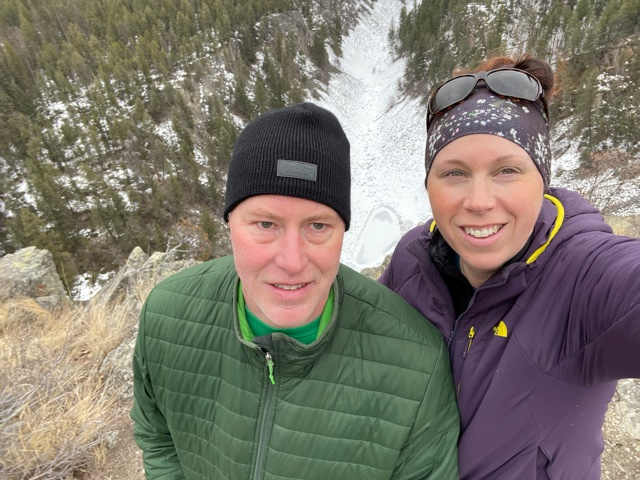When Haley Walker’s 46-year old husband Dave Opperman fell ill last fall, she never imagined the long and terrifying journey that would lay ahead of them.

“Dave had been suffering some flu-like symptoms,” Walker told Global News.
But when Opperman collapsed and could not walk, she knew something was seriously wrong.

“He just lost all function under his legs,” she said. “He collapsed again, so then I had to call 911.”
Opperman was taken to hospital in his home community of Cranbrook, where the couple was shocked to learn he had suffered multiple strokes due to a staph infection.
“It was unbelievable to be 46 and that you’re being told that he had strokes,” Walker said.
Opperman was transferred to Kelowna General Hospital (KGH), where he spent the next three months, half of that time in rehab.
“He’s doing much better,” Walker said. “He’s got a long way to go still. He has balance issues and cognitively, multi-tasking or processing is still quite slow.”
- Trudeau tight-lipped on potential U.S. TikTok ban as key bill passes
- Canadian man dies during Texas Ironman event. His widow wants answers as to why
- Hundreds mourn 16-year-old Halifax homicide victim: ‘The youth are feeling it’
- On the ‘frontline’: Toronto-area residents hiring security firms to fight auto theft
Strokes have devastating consequences because the brain is cut off from its blood supply.
“A brain starts dying right away when it has a lack of blood flow,” said Dr. Aleksander Tkach, KGH’s vascular neurologist and medical director of Interior Health’s Stroke Network.
“So about two million brain cells die every minute.”
According to the Heart and Stroke Foundation, stroke Is the leading cause of long-term disability in adults and is the third-leading cause of death in B.C.
On Thursday, the KGH Foundation launched its latest fundraising campaign to enhance and expand stroke care in the region.
“The money that we are asking people to provide to this campaign will move the care … to a world-class standard,” said Doug Rankmore, KGH Foundation CEO.
“Right now, we’re able to provide the basic level of care in stroke.”

The launch of the $8 million campaign was delayed by nearly a year due to the COVID-19 pandemic.
“Although the pandemic has been kind of front and centre for us, all health care has proceeded, so people have continued to have strokes,” Rankmore said.
“Eighteen hundred people every year in the Interior experience a stroke, and so this is not a rare thing.”
Part of the money will go towards acquiring advanced, acute care equipment, which will allow doctors to immediately remove blood clots from a patient’s head, leading to dramatically better outcomes.
The money will also go towards innovation and research, as well as enhancing stroke-care continuum right across the Southern Interior by providing better access to care for people in smaller communities.
“There’s a time limit that this is effective for,” said Ranmore, “and so what this does is not only brings it to the people of the Okanagan and Kelowna, but all of the Interior through the expansion of a network that actually brings the stroke expertise out to more remote, hospitals, out to people in ambulances.”
The advanced stroke care plan will provide more rehab resources, no matter what community a patient may be in.
“We’re also looking at expanding this into even people’s homes. So is rehab in a facility actually best for you? Or maybe getting back home?” Tkach said.
“Can we actually help you integrate into your home faster, sooner? People are happier at home, they do better at home, they rest better at home.”
Click here for more information about the campaign and the advanced stroke care plan or to donate to the cause.




Comments